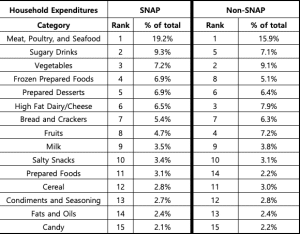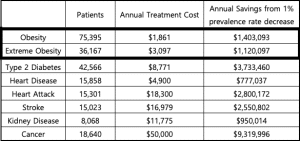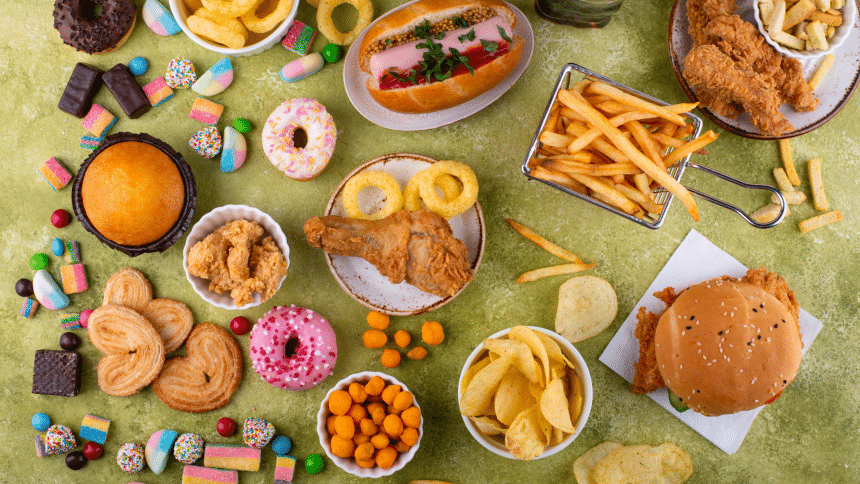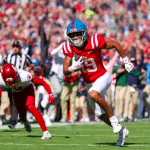As Gov. Tate Reeves mulls the prospect of seeking a waiver from the federal government to prohibit Supplemental Nutrition Assistance Program, or SNAP, recipients in Mississippi from purchasing junk food from grocery stores, State Auditor Shad White says a prospective ban would save taxpayers a lot of money.
The auditor’s report finds that the Magnolia State could save millions of dollars annually if food stamp recipients were prohibited from buying sugary beverages, sodas, candy, snack cakes, and other ultra-processed snacks with taxpayer-subsidized funds.
“President Trump is focused on ‘Making America Healthy Again,’ so we need to Make Mississippi Healthy Again,” White said. “That means a renewed commitment to exercise and teaching our children healthy habits, but it also means using a little more common sense in how we spend taxpayer money on food stamps.”
SNAP is a federal program administered by the U.S. Department of Agriculture’s Food and Nutrition Service, but states are responsible for its day-to-day operations. As part of President Donald Trump and Health and Human Services Secretary Robert F. Kennedy Jr.’s “Make America Healthy Again” initiative, individual states have been incentivized to remove junk foods as an option at the grocery store for those using SNAP funds.
Currently, 12 states have applied for waivers to modify what SNAP recipients can purchase, and each waiver has been approved by federal Agriculture Commissioner Brooke Rollins. Mississippi’s governor has assured the public that seeking a waiver is “on his radar,” but he has yet to take action on the matter. The state’s auditor, however, is looking to make a case that would prompt the governor to act promptly.
More than 380,000 Mississippians, or around 13% of the state’s population, receive SNAP benefits. The program costs north of $800 million in Mississippi alone each year. With reports showing that around 23% of SNAP funds are used on junk food nationally, the state auditor estimated that local taxpayers spend $190 million each year for those on the food-assistance program to acquire unhealthy items.

According to White’s assessment, if Mississippi obtained a waiver to ban just sugary drinks and candy from SNAP, analysts estimate that at least 11.4% of SNAP benefits, or $95 million, could be redirected to more nutritious foods and drinks.
In a state like Mississippi, which is in the nation’s cellar when it comes to obesity rates, restricting purchases of unhealthy foods could pay dividends in healthcare costs. Several leading causes of death in the state are linked to diabetes, heart disease, stroke, kidney disease, and cancer — chronic diseases that can often be attributed to poor nutrition.
With nearly 80% of SNAP beneficiaries being enrolled in Medicaid, a government-run healthcare program, taxpayers are arguably footing the bill for SNAP recipients’ junk food and later subsidizing medical bills linked to illnesses brought about by the consumption of said products.
“If obesity and chronic diseases linked to poor nutrition decreased among SNAP recipients by just 1% then Mississippi’s Medicaid program could see up to $22 million in annual savings,” the state auditor reports.

So far, Arkansas, Colorado, Florida, Louisiana, Idaho, Indiana, Iowa, Nebraska, Oklahoma, West Virginia, Texas, and Utah have been given the green light to remove junk foods as SNAP-approved items. Mississippi could be the next to hop on board, per the governor’s remarks.
“I hope to see all 50 states join this bold commonsense approach. For too long, the root causes of our chronic disease epidemic have been addressed with lip service only. It’s time for powerful changes to our nation’s SNAP program,” Food and Drug Administration Commissioner Martin Makary said. “The goal is simple—reduce mass suffering from diabetes, obesity, and other long-term medical conditions. I applaud the leadership of Secretaries [Brooke] Rollins and Kennedy, and President Trump in going bold.”








